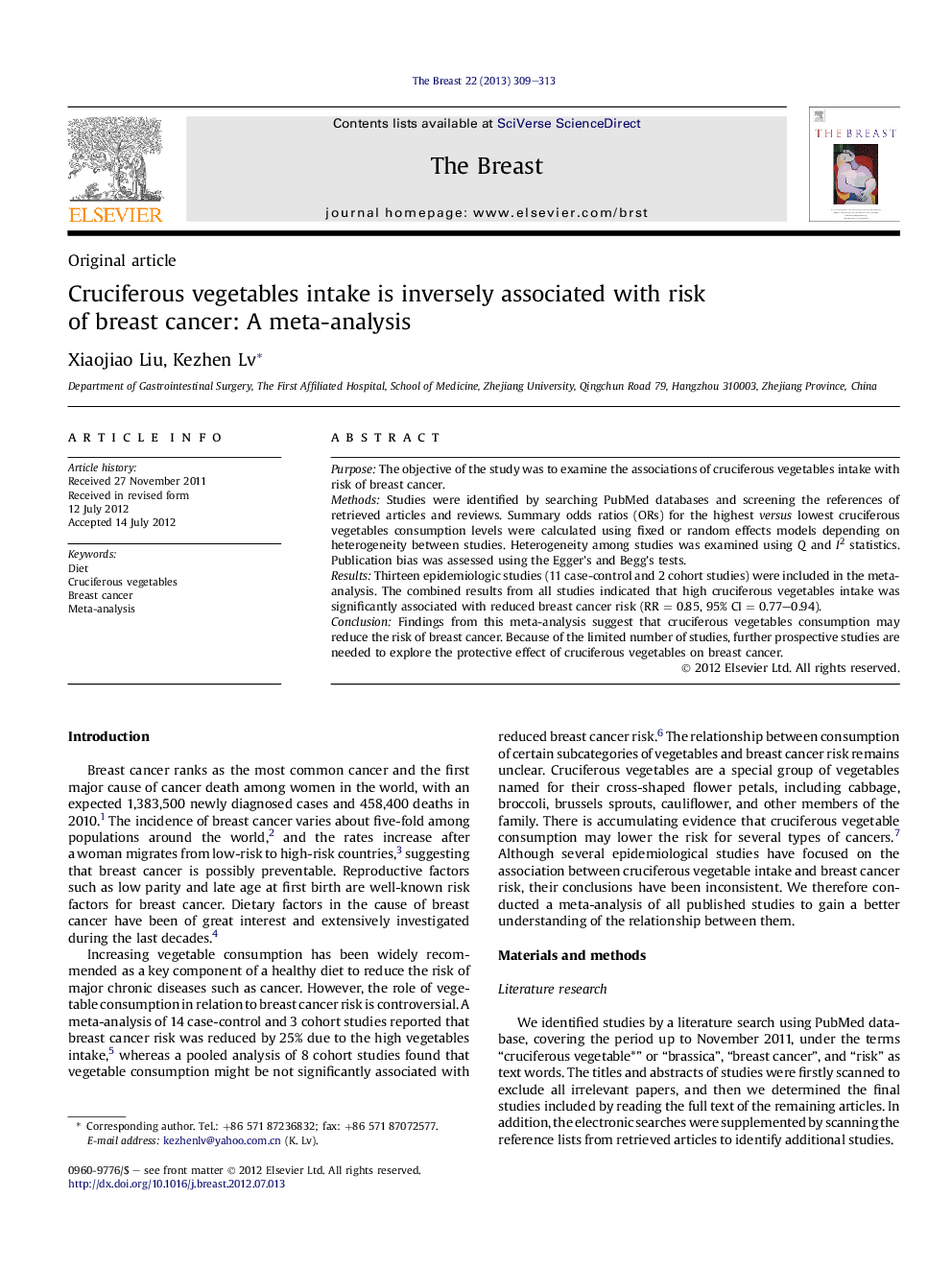| Article ID | Journal | Published Year | Pages | File Type |
|---|---|---|---|---|
| 3908848 | The Breast | 2013 | 5 Pages |
PurposeThe objective of the study was to examine the associations of cruciferous vegetables intake with risk of breast cancer.MethodsStudies were identified by searching PubMed databases and screening the references of retrieved articles and reviews. Summary odds ratios (ORs) for the highest versus lowest cruciferous vegetables consumption levels were calculated using fixed or random effects models depending on heterogeneity between studies. Heterogeneity among studies was examined using Q and I2 statistics. Publication bias was assessed using the Egger's and Begg's tests.ResultsThirteen epidemiologic studies (11 case-control and 2 cohort studies) were included in the meta-analysis. The combined results from all studies indicated that high cruciferous vegetables intake was significantly associated with reduced breast cancer risk (RR = 0.85, 95% CI = 0.77–0.94).ConclusionFindings from this meta-analysis suggest that cruciferous vegetables consumption may reduce the risk of breast cancer. Because of the limited number of studies, further prospective studies are needed to explore the protective effect of cruciferous vegetables on breast cancer.
